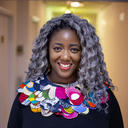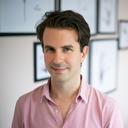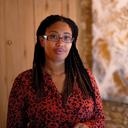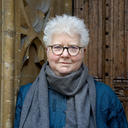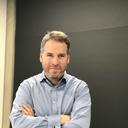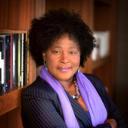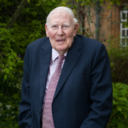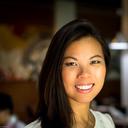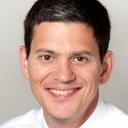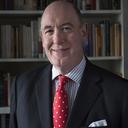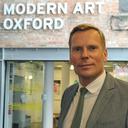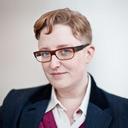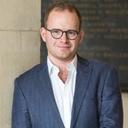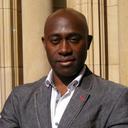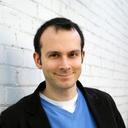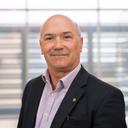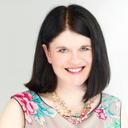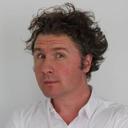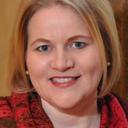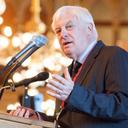ALUMNI STORIES: '80,000 HOURS HELPED ME TURN PHILOSOPHY INTO ACTION'

ALUMNI STORIES: '80,000 HOURS SHOWED ME HOW TO TURN PHILOSOPHY INTO ACTION'
Bella Forristal (Magdalen, 2017) shares her journey from studying Classics to a career at 80,000 Hours
Published: 25 September 2024
Author: Tiya Muluzi
Read an extract of the interview below.
What drew you to study at Oxford?
The main reason I chose Oxford was that my sister went there and seemed to have a pretty good time. She was actually still there while I was studying, although there wasn’t much overlap. Another reason was that I wanted to do Classics, and there aren’t that many universities, even globally, that offer it—it’s fairly niche. The third factor was the structure of the course at Oxford. It’s a four-year program, not three, and at the time I was applying, I had no idea what I wanted to do with my life. So, I thought that an extra year to figure it out would be appealing.
Tell us about your journey from a degree studying Classics & Philosophy to becoming Head of Marketing at 80,000 Hours?
At Oxford, I was thinking a lot about philosophy, and I found a group of people also engaging with these philosophical ideas and applying them to their lives. That was our local effective altruism group. I’m not sure if you’ve heard of effective altruism, but it’s a set of ideas about how we can use our resources to do the most good possible. We’ve got limited time, limited money, so how can we use those to improve the world?
This group of enthusiastic students was deeply engaging with ethical issues. We’d discuss questions like, "What am I going to do with my life?" What attracted me was how seriously they took it. I felt like, even in my degree, discussions of ethics often felt abstract, but this group was like, "No, we’re going to go out and do something about it."
One resource they often mentioned was a website called 80,000 Hours. It had research, podcasts, and articles about philosophy and how to apply these ideas to real-world careers. I started reading it and thought the organisation was really cool. Though I didn’t apply right away as I didn’t think I had anything to contribute back then—I was still in university. After I graduated, I was working on a project with friends, trying to build on what 80,000 Hours was doing. Six months into that, 80,000 Hours reached out to me to run their marketing program.
I was surprised. I had no background in marketing, and I told them, “Surely you could hire someone with actual experience in this.” But they weighed my application against others and decided I was the right person for the job, which was pretty crazy at the time. But I thought if I could accelerate their impact by improving their marketing, it would be a meaningful way to make the world a little better.
Looking back, is there anything you would have done differently in your first-year post-graduation?
After I graduated, I made a mistake in how I approached work. I decided to give 110%—something I hadn’t done as a student. I started working really long hours, and at first, it went well. I felt motivated and was receiving recognition. I became part of the "#lateofficecrew," working until 9pm, posting selfies, and so on. But, long story short, I couldn’t sustain it. I didn’t realise until too late that this constant overworking was making me feel awful. The mistake I made was not setting a time to review this "experiment" of giving 110%. Without a review point, it just became a habit. I was working every hour I could, putting in all my energy, and eventually, it took a toll. If I could do it over, I’d make that experiment shorter. It would have saved me a lot of stress.
How has your time at Oxford helped you in your journey?
Oxford helped me a lot. The main reason is that it’s where I met people who took effective altruism seriously and thought carefully about how their philosophical beliefs should shape their lives. That environment was invaluable to me—it was a kind of wake-up call. It showed me that it was realistic to pursue those ideas seriously.
In terms of concrete skills from my degree, the main ones are not related to classical languages or literary analysis, which I won’t use directly in my career. Instead, the key skills Oxford gave me are more practical. First, output: I can write very quickly, thanks to those three-hour exams where we had to produce essays on complex topics. The second skill is problem-solving: Oxford’s tutorial system taught me to independently deconstruct a question and think about different ways to approach it. I learned how to structure my inquiry into new topics, which has been incredibly useful in everyday life.
You presented a TED Talk, could you share the topic you chose to speak about?
One thing I’ve noticed is that many people my age, or people similar to me, are often sad or struggling. They look at the world—poverty, inequality, war, factory farming, and so on—and feel like they can’t solve these problems. The options seem to be either ignoring these issues or living with the stress and guilt of not being able to fix them. For most of my life, I chose the latter. I carried the weight of the world on my shoulders, feeling powerless. But there’s a third option. That’s what my talk was about: presenting an alternative, a way out of this dilemma.
What is your fondest memory of Oxford?
One of the through lines during my time at Oxford was playing Dungeons and Dragons with friends. I have great memories of those days—like sitting on a friend’s roof as the sun was setting, immersed in our nerdy imaginary battles. I look back on those moments fondly.
How do you think that Oxford changed you?
Since starting at Oxford, I’ve matured a lot. When I first arrived, I could barely look after myself—like many freshers. University was a confusing and difficult time in many ways, but I’ve learned a lot about what I want in life and how to take care of myself. These days, I’m much more capable of creating the kind of life I want, and I feel good about where I’ve ended up.
Find out more about 80,000 Hours
Watch Bella's TEDxOxford talk 'Yes, The World is Broken. No, You’re Not Helpless'



